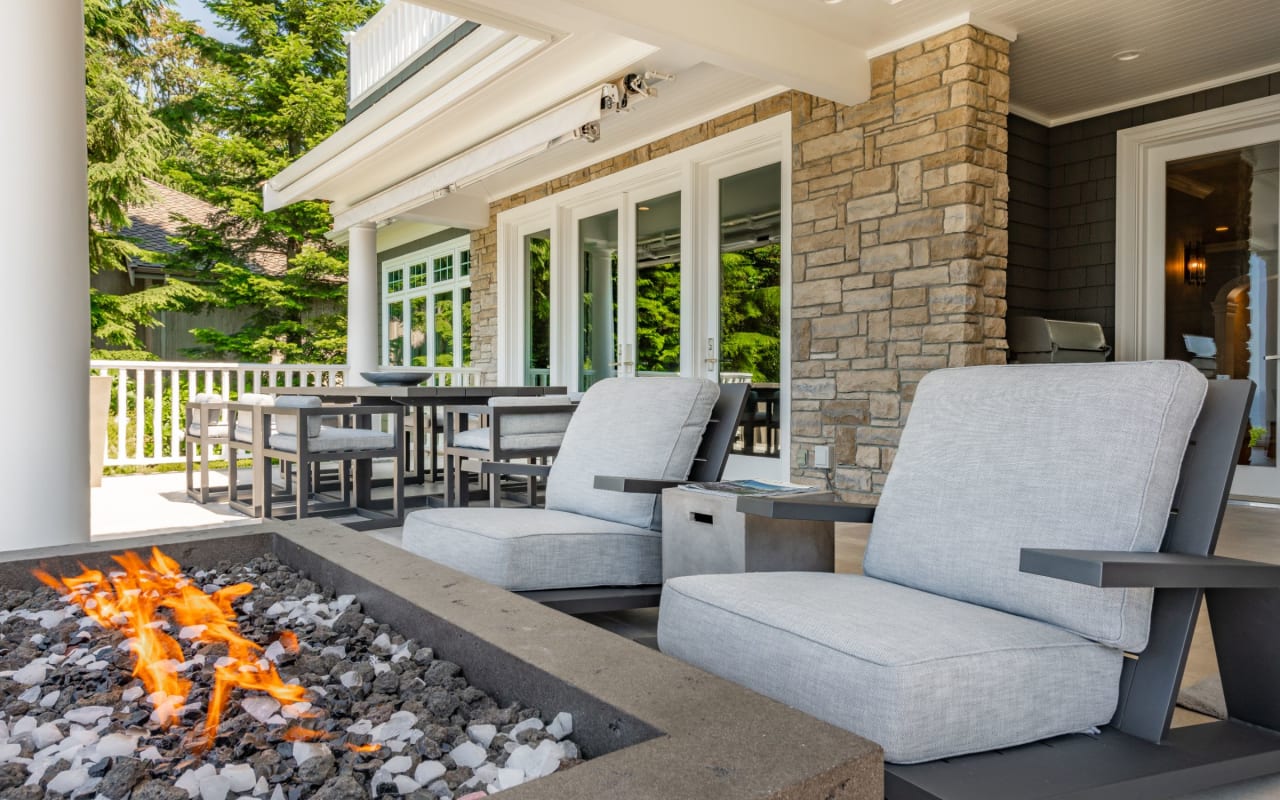
Exterior
Walk around all four sides of the house, scanning it from ground to rooftop. Note the condition of the doors and window frames, and look for cracked or peeling paint or signs of loose siding. Check the gutters and make sure the chimney appears straight and is in good condition.
Roof
Ideally, the roof would be 10 years or less. (A home inspector can confirm if the home needs a full roof replacement).
Yard
Is there a slope angled away from the house, or is there a potential for a flooded basement after a hard rain? Note the condition of the driveway and sidewalks.



